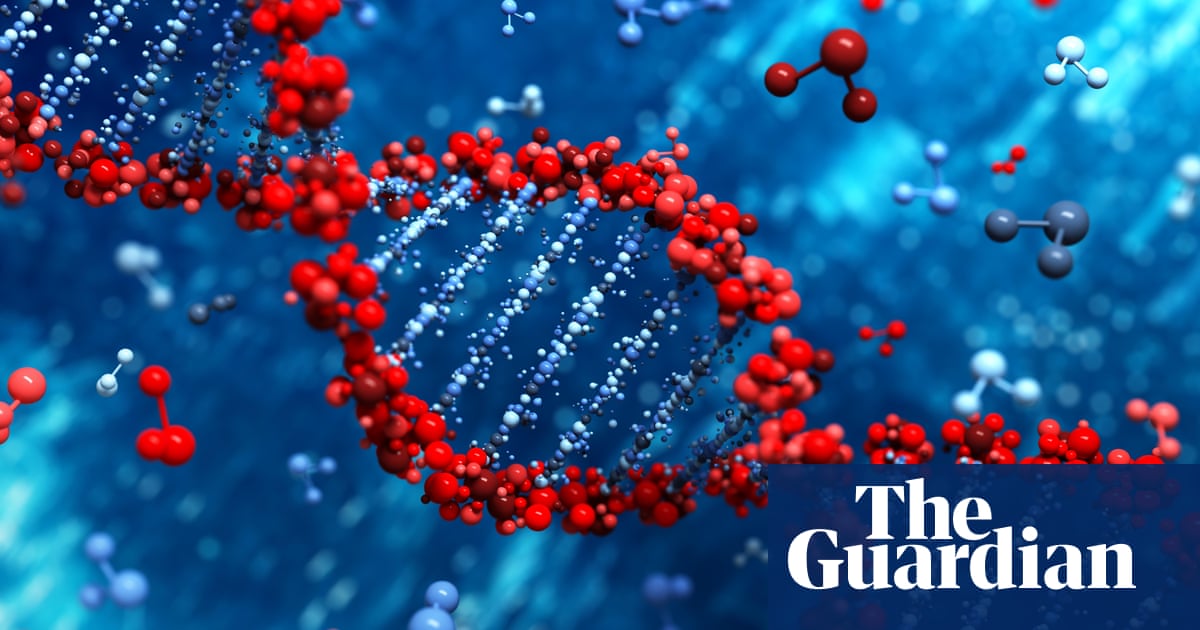Ozymandeas
Veteran
What’s the psychological scientific reason for this playa 

 www.businessinsider.com
www.businessinsider.com
Creating "mirror life" could be one of science's greatest breakthroughs, but some researchers who began the effort are now calling for it to stop.
No mirror-life microorganisms exist. But 38 scientists warned in a paper published in the journal Science on December 12 that if someone created one and it escaped the lab, it could cause a catastrophic multispecies pandemic.
"We're basically giving instructions of how to make a perfect bioweapon," Kate Adamala, a coauthor of the paper and a chemist who leads a synthetic biology lab at the University of Minnesota, told Business Insider.
As the risks became clear, Adamala ended her lab's efforts to build a mirror cell. Her multiyear grant for that research expired and she decided not to apply for renewal, she said.
Now she and the 37 other researchers are urging other scientists to do the same.
"Although we were initially skeptical that mirror bacteria could pose major risks, we have become deeply concerned," they wrote in the paper.
Chirality is the simple fact that molecules — like sugars and amino acids — point in one of two directions. They are either right-handed or left-handed.
For some reason, though, life uses only one chiral form of each molecule. DNA, for example, uses only right-handed sugars for its backbone. That's why it twists to the right.
In mirror biology, scientists aim to create living cells where all the chirality is flipped. Where natural life uses a right-handed peptide to build proteins, mirror life would use the same peptide in its left-handed form.
Adamala's research focused on making mirror peptides, which can help create longer-lasting pharmaceuticals.
The long-term goal of that research was a full mirror cell. Mirror cells could help prevent contamination in bioreactors that use bacteria for green chemical manufacturing because, in theory, they wouldn't interact with natural microorganisms.
"You could have this perfect bioreactor that can just sit there and you can stick your finger into it and you're not going to contaminate it," Adamala said. "That's also precisely the problem."
A mirror bacteria could bypass the natural checks and balances of life, like competing with other bacteria or battling our immune systems.
Immune cells recognize pathogens' proteins, but they wouldn't detect the inverse versions of those proteins that mirror cells would use.
A mirror pathogen "doesn't interact with the host," Adamala said. "It just uses it as a warm incubator with a lot of nutrients."
If a mirror bacteria escaped the lab, it could cause slow, persistent infections that couldn't be treated with antibiotics (because those, too, rely on chirality).
Because they wouldn't face immune resistance, mirror bacteria wouldn't need to specialize in infecting corn, or goats, or birds.
"It would be a disease of anything that lives that can be infected," Adamala said.
In the worst-case scenario, a mirror bacteria would multiply endlessly, unfettered. It would take over its hosts and eventually kill them. It would destroy crops. It would have no predators. It would overwhelm entire ecosystems, swapping out portions of our natural world for a new mirror world.
Zhu leads a mirror-image biology lab at Westlake University in China. He was not involved in the Science paper.
Adamala estimates that the world's first mirror bacteria is still about a decade away. She argues that's exactly why the research should stop now, before it builds all the tools that someone could use to make that final leap.
"No one can do it on their own right now," Adamala said. "The technology is not mature enough, which means we're pretty well safeguarded against someone crazy enough to say, 'I'll just go do it.'"
In the meantime, Adamala and the other paper authors invited more research on and scrutiny of the risks they identified.
"If someone does prove us wrong, that would make me really happy," she said.

A scientist working to create 'mirror life' discovered it could be 'a perfect bioweapon.' She's asking other researchers to stop.
No mirror-image life exists, but scientists are calling for the research to stop before it gets close to a breakthrough.
Creating "mirror life" could be one of science's greatest breakthroughs, but some researchers who began the effort are now calling for it to stop.
No mirror-life microorganisms exist. But 38 scientists warned in a paper published in the journal Science on December 12 that if someone created one and it escaped the lab, it could cause a catastrophic multispecies pandemic.
"We're basically giving instructions of how to make a perfect bioweapon," Kate Adamala, a coauthor of the paper and a chemist who leads a synthetic biology lab at the University of Minnesota, told Business Insider.
As the risks became clear, Adamala ended her lab's efforts to build a mirror cell. Her multiyear grant for that research expired and she decided not to apply for renewal, she said.
Now she and the 37 other researchers are urging other scientists to do the same.
"Although we were initially skeptical that mirror bacteria could pose major risks, we have become deeply concerned," they wrote in the paper.
What is mirror life?
Mirror biology takes a fundamental rule of life on Earth, called chirality, and flips it.Chirality is the simple fact that molecules — like sugars and amino acids — point in one of two directions. They are either right-handed or left-handed.
For some reason, though, life uses only one chiral form of each molecule. DNA, for example, uses only right-handed sugars for its backbone. That's why it twists to the right.
In mirror biology, scientists aim to create living cells where all the chirality is flipped. Where natural life uses a right-handed peptide to build proteins, mirror life would use the same peptide in its left-handed form.
Adamala's research focused on making mirror peptides, which can help create longer-lasting pharmaceuticals.
The long-term goal of that research was a full mirror cell. Mirror cells could help prevent contamination in bioreactors that use bacteria for green chemical manufacturing because, in theory, they wouldn't interact with natural microorganisms.
"You could have this perfect bioreactor that can just sit there and you can stick your finger into it and you're not going to contaminate it," Adamala said. "That's also precisely the problem."
A mirror bacteria could bypass the natural checks and balances of life, like competing with other bacteria or battling our immune systems.
Immune systems would ignore mirror cells
Adamala said "the death sentence" for her mirror-cell research came when she spoke to immunologists. They explained that for humans, other animals, and plants, immune-system activation depends on chirality.Immune cells recognize pathogens' proteins, but they wouldn't detect the inverse versions of those proteins that mirror cells would use.
A mirror pathogen "doesn't interact with the host," Adamala said. "It just uses it as a warm incubator with a lot of nutrients."
If a mirror bacteria escaped the lab, it could cause slow, persistent infections that couldn't be treated with antibiotics (because those, too, rely on chirality).
Because they wouldn't face immune resistance, mirror bacteria wouldn't need to specialize in infecting corn, or goats, or birds.
"It would be a disease of anything that lives that can be infected," Adamala said.
In the worst-case scenario, a mirror bacteria would multiply endlessly, unfettered. It would take over its hosts and eventually kill them. It would destroy crops. It would have no predators. It would overwhelm entire ecosystems, swapping out portions of our natural world for a new mirror world.
A long way away
Ting Zhu, one of the leading researchers working in mirror-image biology systems, told BI in an email that he supported being cautious but didn't think that "a complete mirror-image bacterium can be synthesized in the foreseeable future."Zhu leads a mirror-image biology lab at Westlake University in China. He was not involved in the Science paper.
Adamala estimates that the world's first mirror bacteria is still about a decade away. She argues that's exactly why the research should stop now, before it builds all the tools that someone could use to make that final leap.
"No one can do it on their own right now," Adamala said. "The technology is not mature enough, which means we're pretty well safeguarded against someone crazy enough to say, 'I'll just go do it.'"
In the meantime, Adamala and the other paper authors invited more research on and scrutiny of the risks they identified.
"If someone does prove us wrong, that would make me really happy," she said.




 intentions
intentions

